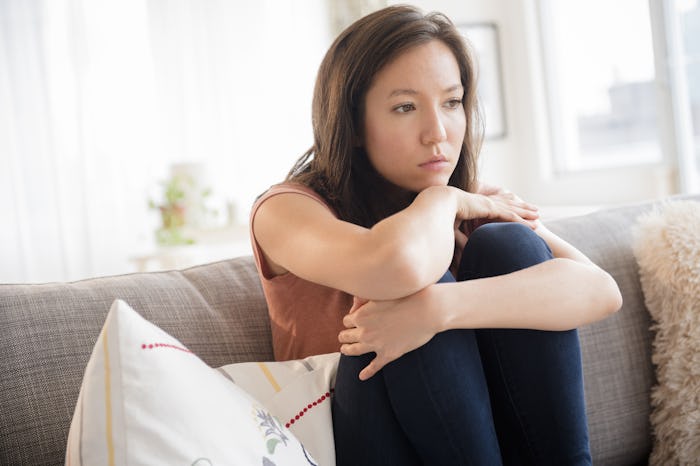Life

Is Postpartum Anxiety Temporary?
Some moms find themselves struggling with long bouts of sadness and anxiety after giving birth. Unlike the baby blues, which is a a mild, brief bout of depression, the condition can be something more serious when these kinds of feelings last more than two weeks. You can be dealing with a mood disorder such as postpartum depression (PPD) or postpartum anxiety (PPA). Although you often hear about women getting treated for PPD, PPA is slightly lesser known. But when a mom starts to feel this all-consuming and overwhelming anxiety, one of the first things she wants to know is, "is postpartum anxiety temporary?"
There is good news. According to Postpartum Support International, postpartum anxiety is temporary and treatable with professional help. Although the knowledge that PPA is not a permanent condition can begin the healing process for some women, the bigger question may actually be, how long does PPA last. Unfortunately, there is no exact answer. The Pacific Post Partum Support Society noted that the amount of time it takes to feel better can depend on many variables such as the severity of your condition, how long you waited to seek help, your history of anxiety and depression, your home environment including how much support you are receiving, and your dedication to treatment and self-care.
Getting treatment early is the key to overcoming PPA as quickly as possible. Treatment varies depending on the situation, but it isn't uncommon for your healthcare provider to recommend medication to manage symptoms. According to Postpartum Progress, SSRI medication (like Zoloft) and benzodiazepines (like Klonopin) are usually very helpful in treating PPA and known to be safe for breastfeeding moms. Don't avoid treatment because you feel embarrassed or ashamed of these feelings. You are not alone. In fact, a study in Pediatrics of more than 1100 new mothers found that 17 percent of moms showed symptoms of postpartum anxiety. If left untreated, Parents warned, postpartum anxiety can interfere with your ability to bond with your baby.
It cannot be stressed enough — the most important thing a new mom with severe anxiety can do is seek treatment. Once you're symptoms are under control, counseling can help you work through the non-biological causes of anxiety. This means looking into what is triggering anxiety as a brain response and figuring out a way to overcome those triggers. Eventually you will learn the skills to cope with your anxiety now and deal with anxiety-inducing situations in the future.